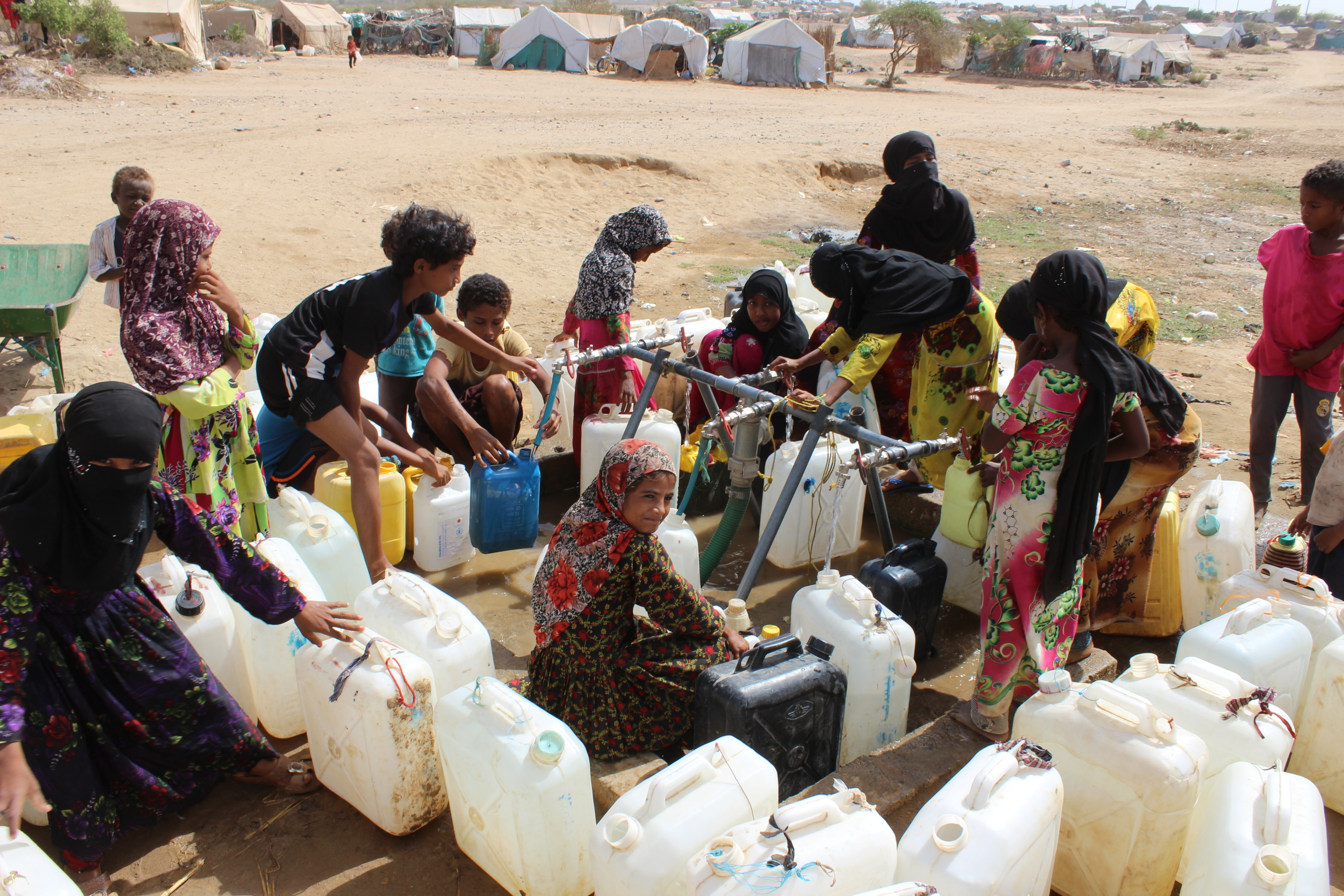The Grand Bargain in Practice: Stories of implementation
Do you have examples of how your organisation rolled-out the Grand Bargain commitments at regional and country level? Share them with us here!
See below examples how the Grand Bargain Signatories are implementing their Grand Bargain commitments at country and regional level in the spirit of quid pro quo, and how this contributes to making humanitarian aid more efficient and effective, and how it's delivering improvements to a system that works for people in need.
COUNTRY-SPECIFIC
 Embedding the commitments in Somalia
Embedding the commitments in Somalia
(July 2020)
International and national humanitarian actors in Somalia have sought to embed many of the commitments under the Grand Bargain into their work, including through the Humanitarian Needs Overview and Humanitarian Response Plan, the Somalia NGO Consortium and the Somalia Humanitarian Fund.

Efforts by the Humanitarian Country Teams (HCTs) in 2019
(July 2020)
The Grand Bargain Annual Independent Report 2020 demonstrated that the efforts of Humanitarian Country Teams (HCTs), UN Country Teams, NGO and donor fora and individual Signatories have resulted in an array of pilots, initiatives and programmes instituted at country and crisis level in 2019 in support of the core commitments and other areas of the Grand Bargain.
MEMBER STATES
Belgium reducing the impact of Covid-19 with flexible funding and increased local partnerships
(December 2020)
Prompted by the effects of the pandemic, Belgium increased further its flexibility and decided to foster more coordination and collaboration between the Belgian NGOs in the framework of the Covid-19 response.
 Australia’s investment in preparedness for a more effective, coordinated and inclusive disaster response configuration options
Australia’s investment in preparedness for a more effective, coordinated and inclusive disaster response configuration options
(September 2020)
The Australian Humanitarian Partnership contributes to a more resilient Pacific by supporting and building capacity of local and national responders, and increasing preparedness for early action, two of the Grand Bargain commitments.
UN AGENCIES
 UNFPA’s pooled fund reducing the costs of humanitarian response
UNFPA’s pooled fund reducing the costs of humanitarian response
(April 2020)
UNFPA’s Humanitarian Action Thematic Fund (HTF) shows that flexible, predictable and multi-year funding reduces transaction costs, and enables a comprehensive response to people in humanitarian settings.
 FAO's implementation at country level
FAO's implementation at country level
(October 2019)
The Grand Bargain is delivering positive change at both headquarters and country/field level, which is ultimately benefiting people affected by humanitarian crises. Examples of Food and Agriculture Organisation (FAO) implementing their Grand Bargain commitments at country level in 2018 include a complementary approach that bridges humanitarian and development objectives, shrinking needs and reducing costs by early actions in agriculture, and providing more support to local partners in Afghanistan.
RED CROSS/RED CRESCENT MOVEMENTS
 ICRC support to Niger Red Cross - Engaging with communities to ensure safe access for volunteers in COVID-19 response
ICRC support to Niger Red Cross - Engaging with communities to ensure safe access for volunteers in COVID-19 response
(March 2021)
In its efforts to ensure that people and communities affected by crises influence humanitarian responses, and to increase and support multi-year investments in the institutional capacities of local and national responders, ICRC has been supporting the National Red Cross and Red Crescent Societies to prepare for and respond safely and effectively to humanitarian needs in sensitive and insecure contexts. It contributes to their endeavours to build the trust and acceptance of people and communities in need.
 IFRC improving responses through community feedback data
IFRC improving responses through community feedback data
(March 2020)
As part of its Grand Bargain commitment and approach to ensure people and communities affected by crises influence humanitarian responses, IFRC has been championing its real-time community feedback mechanism during the Ebola outbreak in the Democratic Republic of Congo. They gathered more than half a million individual insights (ranging from feedback, rumours, concerns and misconceptions) from affected people in less than two years – and acted upon them.
NON-GOVERNMENTAL ORGANISATIONS
 Mercy Corps’ holistic localisation benefits affected people in Syria
Mercy Corps’ holistic localisation benefits affected people in Syria
(August 2020)
To engage with local and national responders in a spirit of partnership and to reinforce rather than replace their capacities, Mercy Corps provided capacity building support to local Syrian NGOs.

Dutch Relief Alliance boosts support for local and national responders
(December 2019)
Striving to implement their Grand Bargain commitment to provide more support and funding tools for local and national responders, the Dutch Relief Alliance members assisted local organisations in directly accessing funding for their programmes, and strengthening capacity in DR Congo, Iraq, Nigeria, Somalia and Sudan.
